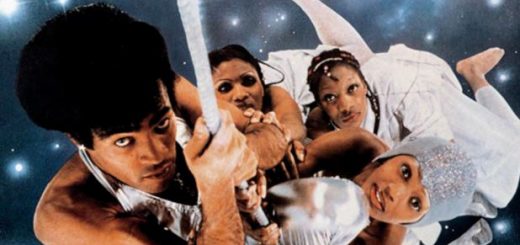Rivers of Babylon by Boney M. Lyrics Meaning – Unveiling the Spiritual Saga in Pop
Lyrics
Yeah, we wept, when we remembered Zion
By the rivers of Babylon, there we sat down
Yeah, we wept, when we remembered Zion
There the wicked
Carried us away in captivity
Required from us a song
Now how shall we sing the Lord’s song in a strange land?
There the wicked
Carried us away in captivity
Requiring of us a song
Now how shall we sing the Lord’s song in a strange land?
Yeah, yeah, yeah, yeah, yeah
Let the words of our mouth and the meditation of our heart
Be acceptable in thy sight here tonight
Let the words of our mouth and the meditation of our hearts
Be acceptable in thy sight here tonight
By the rivers of Babylon, there we sat down
Yeah, we wept, when we remembered Zion
By the rivers of Babylon, there we sat down
Yeah, we wept, when we remembered Zion
By the rivers of Babylon (dark tears of Babylon)
There we sat down (you got to sing a song)
Yeah, we wept (sing a song of love)
When we remembered Zion (yeah, yeah, yeah, yeah, yeah)
By the rivers of Babylon (rough bits of Babylon)
There we sat down (you hear the people cry)
Yeah, we wept (they need their God)
When we remembered Zion (ooh, have the power)
By the rivers of Babylon (oh yeah yeah), there we sat down (yeah, yeah)
Boney M.’s ‘Rivers of Babylon’ is more than just a foot-tapping disco classic; it’s an incisive narrative set in melody, weaving history, spirituality, and cultural identity into its vibrant fabric. Through its intoxicating rhythms, the song manages to convey a story of displacement, loss, and the resilient spirit of a people torn from their homeland.
Released in 1978, this infectious track became one of the top-selling singles of all time, but to understand its enduring appeal requires delving into the layers of meaning wrapped within its catchy chorus and compelling verses. It’s a journey through time, scripture, and the human soul—a voyage we will now embark upon.
Behind the Beat: A Psalmic Ode to the Captive Soul
At its core, ‘Rivers of Babylon’ is a modern interpretation of Psalm 137, a biblical lament that speaks of the Hebrews’ exile to Babylon. The original psalm captures the sorrow of the Israelites who were taken from their beloved Jerusalem and highlights a deep yearning for their spiritual home. Boney M. adapts this historical heartache into a universally relatable expression of displacement and exile.
The Euro-Caribbean group, under the charismatic leadership of producer Frank Farian, transformed these ancient verses into a discotheque-ready anthem. The underlying sorrow of the song, however, punctuates each beat and invites the listener not just to dance but to ponder the timeless tale of longing and connection to one’s roots.
A Cry by the Waters: The Universal Appeal of Loss and Hope
‘By the rivers of Babylon, there we sat down, Yeah, we wept, when we remembered Zion.’ These memorable lines don’t merely belong to the ancient Israelites; they resonate with countless people who’ve experienced the ache of being far from home, whether physically, emotionally, or spiritually. It’s this universal feeling that elevates the song from a simple pop hit to an enduring cultural touchstone.
The global succès de scandale of ‘Rivers of Babylon’ can be attributed to the way it encapsulates the immigrant experience, the plight of refugees, and the emotional state of anyone ever forced to leave their home. With its hypnotic melody, it crosses linguistic and cultural barriers, becoming a rallying cry for all who seek solace and strength in the face of adversity.
In Babylon’s Clutches: The Song’s Hidden Reference to Colonialism
Beyond its biblical underpinnings, ‘Rivers of Babylon’ subtly comments on the dark legacy of colonialism and the African Diaspora. The ‘wicked’ who carried the people into captivity echo the historical tragedies of colonization and slavery, where countless individuals were uprooted and compelled to adapt to foreign lands under oppressive circumstances.
Though Boney M.—a group with its origins in the West Indies—opts for an upbeat tempo, the gravity of the topic is never lost. The song has thus become an understated yet powerful expression of defiance, a declaration that the spirit of a people cannot be caged by the rivers of any Babylon, be it ancient or contemporary.
‘Sing a song of love’: An Ode to Resilient Hearts
The infectious ‘Yeah, yeah, yeah, yeah, yeah’ serves as a bridge between lament and empowerment, encapsulating the human capacity to transform suffering into something not only bearable but imbued with positivity and rhythm. These simple words serve as a mantra, a musical incantation that summons the resilience at the heart of ‘Rivers of Babylon.’
Indeed, the song challenges its listeners to find their own ‘song of love’ amidst trials and tribulations. It becomes an anthem for survival and a testament to the enduring power of faith and culture, a reminder that even when faced with systemic injustice or personal hardship, humanity can still find reasons to sing.
Speaking to Our Time: Why ‘Rivers of Babylon’ Still Resonates Today
Decades after its release, ‘Rivers of Babylon’ remains timely, a reflection of the continuing struggles against modern forms of exile and captivity, from systemic racism to the dislocation wrought by wars and environmental disasters. The song captures a collective memory, offering a vehicle of expression for those grappling with current societal issues.
As it continues to play on radio waves and in the hearts of many, ‘Rivers of Babylon’ stands as a beacon of hope and a source of comfort. It’s a testament to the enduring power of music to heal, unite and inspire. And so, ‘there we sit down,’ with Boney M.’s timeless hymn flowing alongside our own rivers, inviting reflection, action, and maybe even a little dancing.








